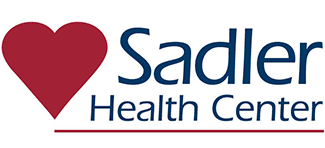There are many different aspects to living a healthy life. As May approaches and we celebrate Mental Health Month, the behavioral health team at Sadler Health Center has shared resources in maintaining good mental health, evaluating your mental health and knowing what to do if you need help.

Maintaining Good Mental Health
Making good food choices, getting enough sleep, exercise, stress management & learning coping skills are all ways to maintain and keep good mental health, said the team.
The National Alliance on Mental Illness has great resources for individuals looking for some coping methods when stressful situations do come up. These include deep breathing, using mindfulness techniques and grounding oneself through the senses.
Self-Evaluation
It is important to notice changes in your daily routine such as feeling isolated, short tempered, change in sleep patterns or rapid weight loss or gain. After going through some evaluation of self (by following these steps), it may be time to seek help.
According to Kristen Ruis, LCSW, Behavioral Health Specialist at Sadler Health Center, people can be hesitant to get treatment for a variety of reasons including “feeling fear and shame” and feeling as if they should be able to overcome it on their own.
“I would encourage people to seek treatment early so they can understand more about mental illness and how it is treated,” Ruis said. “They can gain support so they know they aren’t alone and finally so they can start to feel and function better.”
Where to Go/ What Do If You Need Help
Sadler Health Center can help patients improve their mental health through lifestyle changes such as exercising and eating more nutritious foods, but staff can connect people to resources such as Crisis Intervention. Patients who receive medical services at Sadler Health Center are eligible for integrated behavioral health services and telepsychiatry.
“We know there is not a ‘one size fits all’ treatment,” Kristen said. “At Sadler, a Behavioral Health Specialist, who is a Licensed Clinical Social Worker, will meet with a patient to listen, understand their concerns and goals, and assess and evaluate so that treatment can be recommended.”
For a quick list of resources, please click here and here.
If you are in the middle of a life-threatening emergency and need to speak with someone immediately, Carlisle Crisis is available at (717) 243-6005 and Camp Hill Area is (717) 763-2222. You can also text the word “HOME” to 741741 to be connected with a crisis counselor. The National Suicide Prevention Hotline at 1-800-273-8255. There is help available in English and Spanish 24 hours a day. There is help out there.
